Filter by
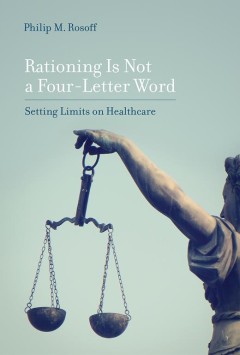
Rationing is not a four-letter word : setting limits on healthcare
"Most people would agree that the healthcare system in the United States is a mess. Healthcare accounts for a larger percentage of gross domestic product in the United States than in any other industrialized nation, but health outcomes do not reflect this enormous investment. In this book, Philip Rosoff offers a provocative proposal for providing quality healthcare to all Americans and controll…
- Edition
- -
- ISBN/ISSN
- 0262320762
- Collation
- 1 online resource (xiv, 320 pages).
- Series Title
- -
- Call Number
- -
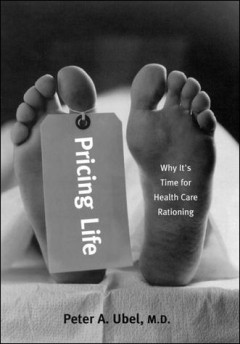
Pricing life :why it's time for health care rationing
A rational look at health care rationing, from ethical, economic, psychological, and clinical perspectives. Although managed health care is a hot topic, too few discussions focus on health care rationing—who lives and who dies, death versus dollars. In this book physician and bioethicist Peter A. Ubel argues that physicians, health insurance companies, managed care organizations, and gover…
- Edition
- -
- ISBN/ISSN
- 9780262285346
- Collation
- 1 online resource (xix, 208 pages).
- Series Title
- -
- Call Number
- -
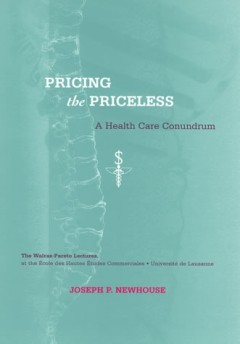
Pricing the priceless :a health care conundrum
The health care industry differs from most other industries in that medical pricing is primarily administered by the government and private insurers and in that it uses several types of contracts. Providers may receive a fixed sum for all necessary services within a given period of time, for the necessary services to treat a given condition, or for each specific service. The industry is changin…
- Edition
- -
- ISBN/ISSN
- 9780262280600
- Collation
- 1 online resource (viii, 258 pages) :illustrations.
- Series Title
- -
- Call Number
- -
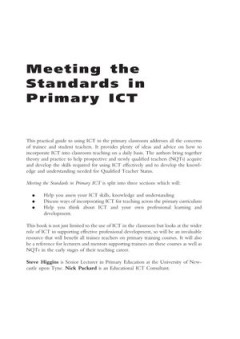
Meeting the Standards in Primary ICT : a Guide to the ITTNC
This practical guide to using ICT in the primary classroom addresses all the concerns of student teachers and provides plenty of ideas and advice on how to incorporate ICT into classroom practice on a daily basis. The authors bring together theory and practice to help prospective and new teachers acquire and develop the skills required for using ICT effectively. Meeting the Standards in Primary…
- Edition
- -
- ISBN/ISSN
- 9780203464243
- Collation
- 224 halaman
- Series Title
- -
- Call Number
- 370 HIG m

What Is Health Insurance (Good) For? An Examination of Who Gets It, Who Pays…
This informative volume synthesizes the literatures on health economics, risk management, and health services into a concise guide to the financial and social basics of health insurance with an eye to its wide-scale upgrade. Its scope takes in concepts of health capital, strengths and limitations of insurance models, the effectiveness of coverage and services, and the roles of healthcare provid…
- Edition
- -
- ISBN/ISSN
- 978-3-319-43796-5
- Collation
- -
- Series Title
- -
- Call Number
- -

What Every Medical Writer Needs to Know Questions and Answers for the Seriou…
This book presents must-know facts generally not covered in “How To” books about medical writing. Every medical writer, whether a beginner or veteran, needs answers to questions many might not even know to ask. How does your personality type influence your writing behavior, and what can you do to make writing easier for you? What should you ask before agreeing to co-author an article for pu…
- Edition
- -
- ISBN/ISSN
- 978-3-319-20264-8
- Collation
- -
- Series Title
- -
- Call Number
- -
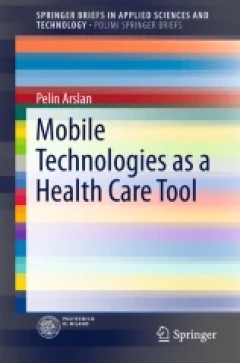
Mobile Technologies as a Health Care Tool
This book presents a state-of-the-art overview of the available and emerging mobile technologies and explores how these technologies can serve as support tools in enhancing user participation in health care and promoting well-being in the daily lives of individuals, thereby reducing the burden of chronic disease on the health care system. The analysis is supported by presentation of a variety o…
- Edition
- 1
- ISBN/ISSN
- 978-3-319-05917-4
- Collation
- X, 123
- Series Title
- SpringerBriefs in Applied Sciences and Technology
- Call Number
- -
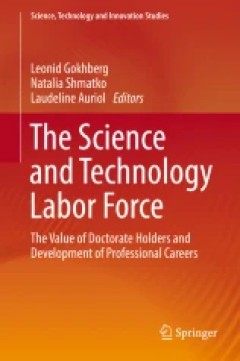
The Science and Technology Labor Force
This book provides an in-depth analysis of the demand for PhDs on the labor markets of twelve countries. The authors analyze the role of PhDs in the creation of innovation in a knowledge-based economy and examine economic issues such as the return on investment for the education and training of doctoral graduates. To provide a more comprehensive picture of the employment patterns, career paths …
- Edition
- 1
- ISBN/ISSN
- 978-3-319-27210-8
- Collation
- -
- Series Title
- -
- Call Number
- -

The biology of kindness :six daily choices for health, well-being, and longev…
Originally published: Biologia della gentilezza: Le 6 scelte quotidiane per salute benessere e longevit?a, 2020."Explains how our life behaviors can affect our state of health by comparing science and conscience in a revolutionary approach to health, longevity and quality of life"--OCLC-licensed vendor bibliographic record.
- Edition
- -
- ISBN/ISSN
- 9780262378192
- Collation
- 1 online resource
- Series Title
- -
- Call Number
- -

Crowded out :the true costs of crowdfunding healthcare
"Crowded Out examines how charitable crowdfunding so quickly overtook public life, where it is taking us, and who gets left behind by this new platformed economy. While crowdfunding has become ubiquitous in our lives, it is largely misunderstood by the public: rather than a friendly free market "powered by the kindness" of strangers, crowdfunding is powerfully reinforcing inequalities and chang…
- Edition
- -
- ISBN/ISSN
- 9780262378611
- Collation
- 1 online resource
- Series Title
- -
- Call Number
- -
 Computer Science, Information & General Works
Computer Science, Information & General Works  Philosophy & Psychology
Philosophy & Psychology  Religion
Religion  Social Sciences
Social Sciences  Language
Language  Pure Science
Pure Science  Applied Sciences
Applied Sciences  Art & Recreation
Art & Recreation  Literature
Literature  History & Geography
History & Geography